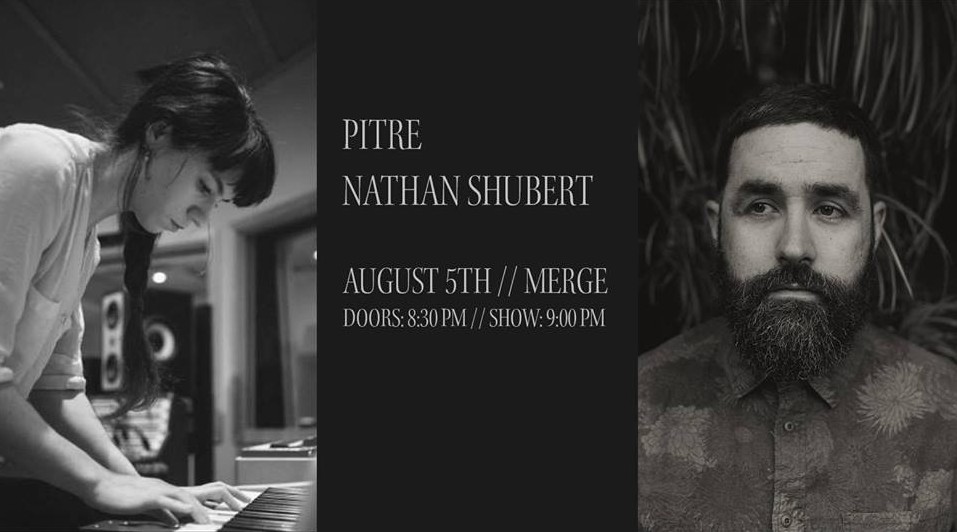On the evening of August 5, I cycled North on Clarke Drive and found myself at the nexus of urban development and the Vancouver dockyards looking for Merge, a venue to which I had never been. Nestled discreetly beneath the overpass to the harbourage and windy corridor of Powell Street, this interdisciplinary artist-run venue is tucked away on the second floor of a nondescript building. After locking my bike to a rather precarious railing, I walked up the stairs into a warm apartment-like room with the soft light of red paper lanterns blooming down from the ceiling onto the red drapes that lined the back wall of the stage — a welcome foil to the cold phosphorous lights of the seaport just across the train tracks.
About two dozen people lounged about the room on homely couches and tables casually chatting. The evening’s performers were Nathan Shubert and Pitre, who sat amongst friends kindly nodding to entering guests.
At 9:30 p.m., without introduction, Nathan Shubert sat at the upright piano and drifted into a delicate collection of minimal, classically tinged piano pieces. Shubert’s fleet-fingered playing danced along the keyboard with such grace it took me a while to notice the green felt draped across the strings, dampening the sound. This rendered the notes whisper quiet and highlighted the mechanical sounds of the instrument.
The rooftop door was left open and the industrial thrum of the shipping yards leaked into the room. Rather than distract from Shubert’s playing, the din from outside blended with the cyclical music, heightening its effect as it wandered through the urban spaces and sounds.
Pieces like “Foals” and “Crest” lulled along with their temporal and harmonic consistency but Shubert was still able to create powerful tension with a well placed pause. It seemed like these songs had always been playing somewhere and had just then surfaced into earshot.
In a similarly peaceful fashion, Pitre followed shortly accompanied by a clarinet and violin. In contrast to Shubert’s phonometric repetition, Pitre’s dirge-like songs swelled as her voice carried sedate melodies with remarkable precision at a low register. Her voice was punctuated by the melodic lines of the clarinet and violin, which although adding depth to the timbre never seemed to take away from the impression that Pitre was the only one on stage.
While Pitre’s playing invoked a sense of quietude, her music nonetheless emitted somber emotional pain like the red lamps glowing above her. Her lyrics flowed thematically through the restless isolation of insomnia, the absence of direction, and loneliness. If I hadn’t heard a faint train whistle blow from the tracks outside, I probably would have heard it in my head.
When the show ended and I left the humid red of Merge, I found myself once again in the blue-grey dust of Powell Street beneath the overpass. The contrast was jarring at first, but then the music I had just heard faded back into my head and I breathed a sigh of relief that my bike hadn’t been stolen.


